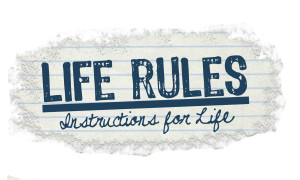 Be perfect. Be strong. Hurry up. Please others. Try hard. Any of these beliefs sound familiar? I know I have them. I can picture my parents admonishing me to be these things, frequently adding the word “should.” I “should” be perfect, please others, etc. After all, who wouldn’t want their kid to be all these things, right?
Be perfect. Be strong. Hurry up. Please others. Try hard. Any of these beliefs sound familiar? I know I have them. I can picture my parents admonishing me to be these things, frequently adding the word “should.” I “should” be perfect, please others, etc. After all, who wouldn’t want their kid to be all these things, right?
In moderation, believing these rules of life can contribute to a higher quality of life, but when we allow them to take us over, behaviors can tip toward dysfunctional, even obsessive, and all we get is more stress. Here’s how to cast a little doubt on universal beliefs that are causing you grief.
Psychologists call beliefs that we should be perfect, be strong, or try hard “drivers.” They’re very powerful rules of life that we’ve adopted in order to know what to do when certain situations arise. They are learned in early childhood and modified somewhat by ongoing experiences.
Such beliefs can be foundational to our reactionary behavior patterns or, as I like to call it, our Knower/Judger, at least as it pertains to how we fit in our world. Like all of our K/J rules, they can be very productive or limiting and dysfunctional, depending on when, where, and under what circumstances they are invoked.
On the plus side, they give us a standard to work from. When stressed, try harder. When slipping behind, hurry up. There are times when this pans out. If, for example, hurrying up solves the problem, it’s rewarding and can be behavior-reinforcing. Pleasing others can, in certain situations, be the most productive thing to do.
But because these constitute a library of responses we can give to individual stressors, they are reactionary…we react to situations using these tools. When the normal application of one of these drivers doesn’t produce the desired result, what happens? More stress! Stress becomes both the trigger that gets us to follow the rule of life and the product of following it. And we’re in a tailspin.
My dad had a number of rules (I’ve quoted some of these in the past). Here’s the one that this discussion brings to mind: “When you hit your head against the rock wall long enough, pretty soon your head takes the shape of the rock wall.”
There are times when our overpowering “driver” or belief takes control. We relinquish control of our behavior to the learned response stored in our brain (Hey, it’s worked for me in the past). We lose track of the reality (rock wall) and just keep invoking the driver. Not only isn’t it working, it’s creating higher levels of…
S-T-R-E-S-S!
Have you been in a stressful period recently? Check your drivers. There’s a good chance that one of these K/J rules (or an inability to live up to one of them) is an underlying contributor.
If you find this to be the case, you can cast doubt on the belief that your K/J knows is true by asking a few questions:
• Who says I must be perfect (or more accurately who said I must be perfect), and why is it a rule for me today?
• What is “enough” of something? Who says or said that?
• What are the consequences if I don’t obey this “rule”?
Byron Katie, author of Loving What Is, has an exercise she calls “the Work” that people can do when stress and struggle take over their lives. I find it useful in helping people identify, root out, and manage these drivers.
The Work consists of a series of questions:
1. Is it true (I prefer accurate) that you “should”…?
2. Can you absolutely know that it’s true?
3. How do you react when you believe that thought?
4. Who would you be without that thought?
She goes on to have her students do what she calls “turnarounds,” reversing the intent of the “should” as many ways as one can. The turnarounds are an assertive way of casting doubt on a belief. We can simply doubt the value of this rule (Who says?) or we can experiment with completely opposite rules (I should not hurry up; I should slow down).
I frequently try these exercises when a “should” pops into my head. It’s like doubting your truth temporarily, and it’s very neutralizing. It gives me that space between stimulus and response in which I can choose a different response.
Overused drivers causing wrecks? Try recognizing them and choosing an interpretation other than your “should.”


